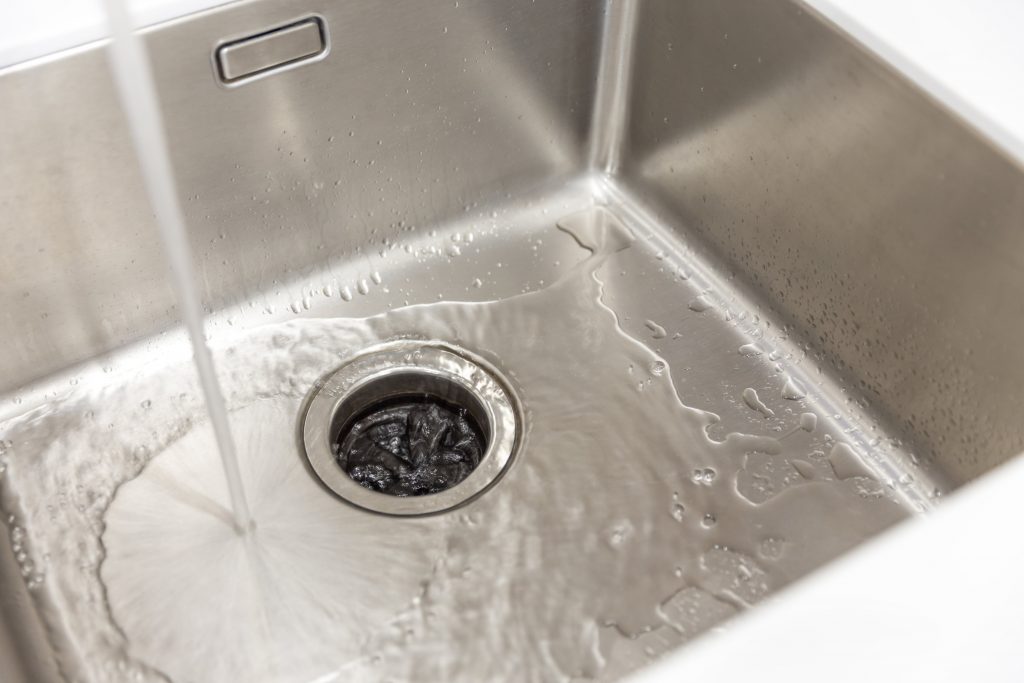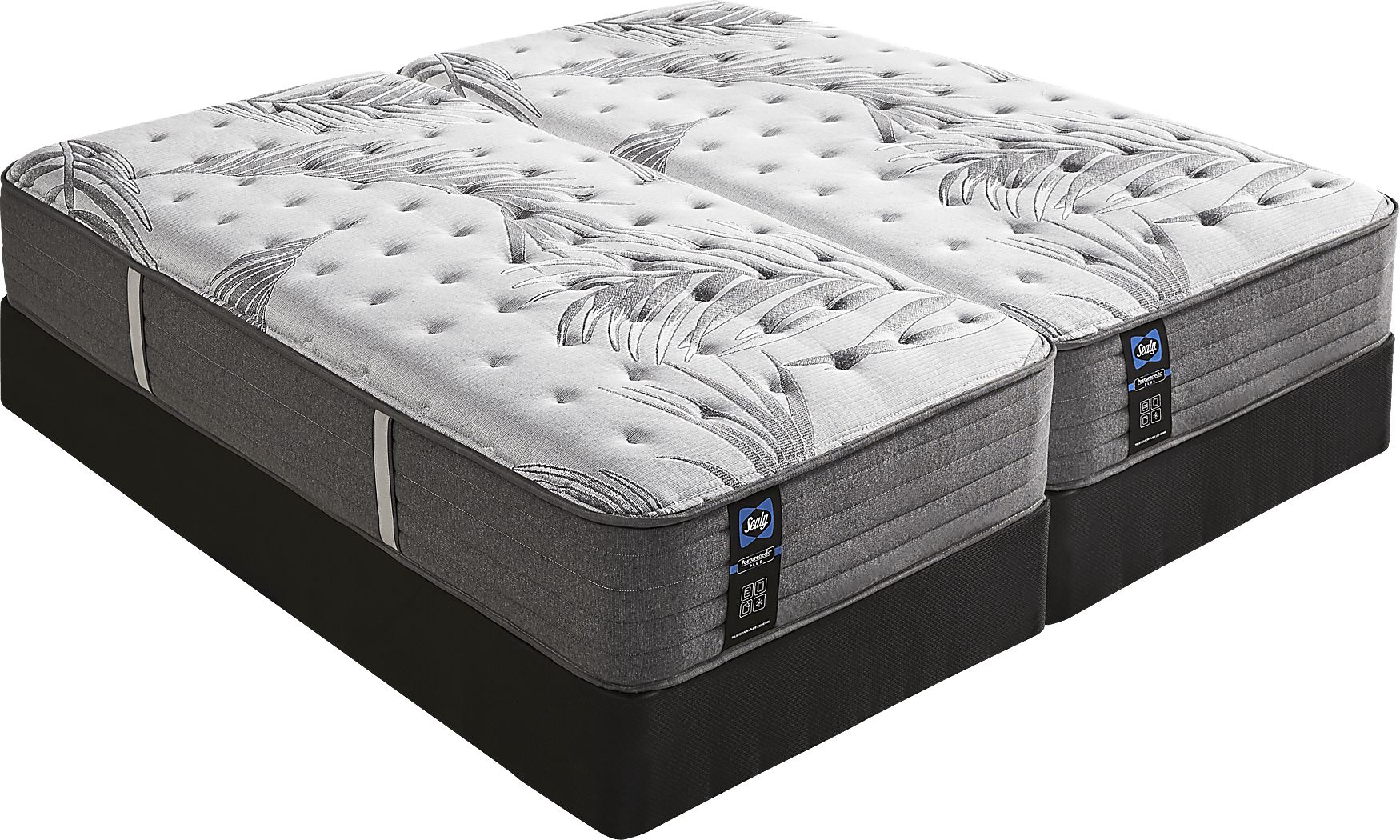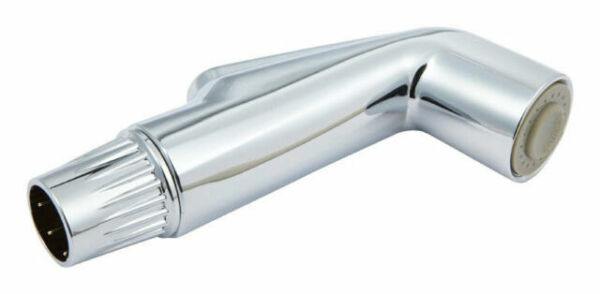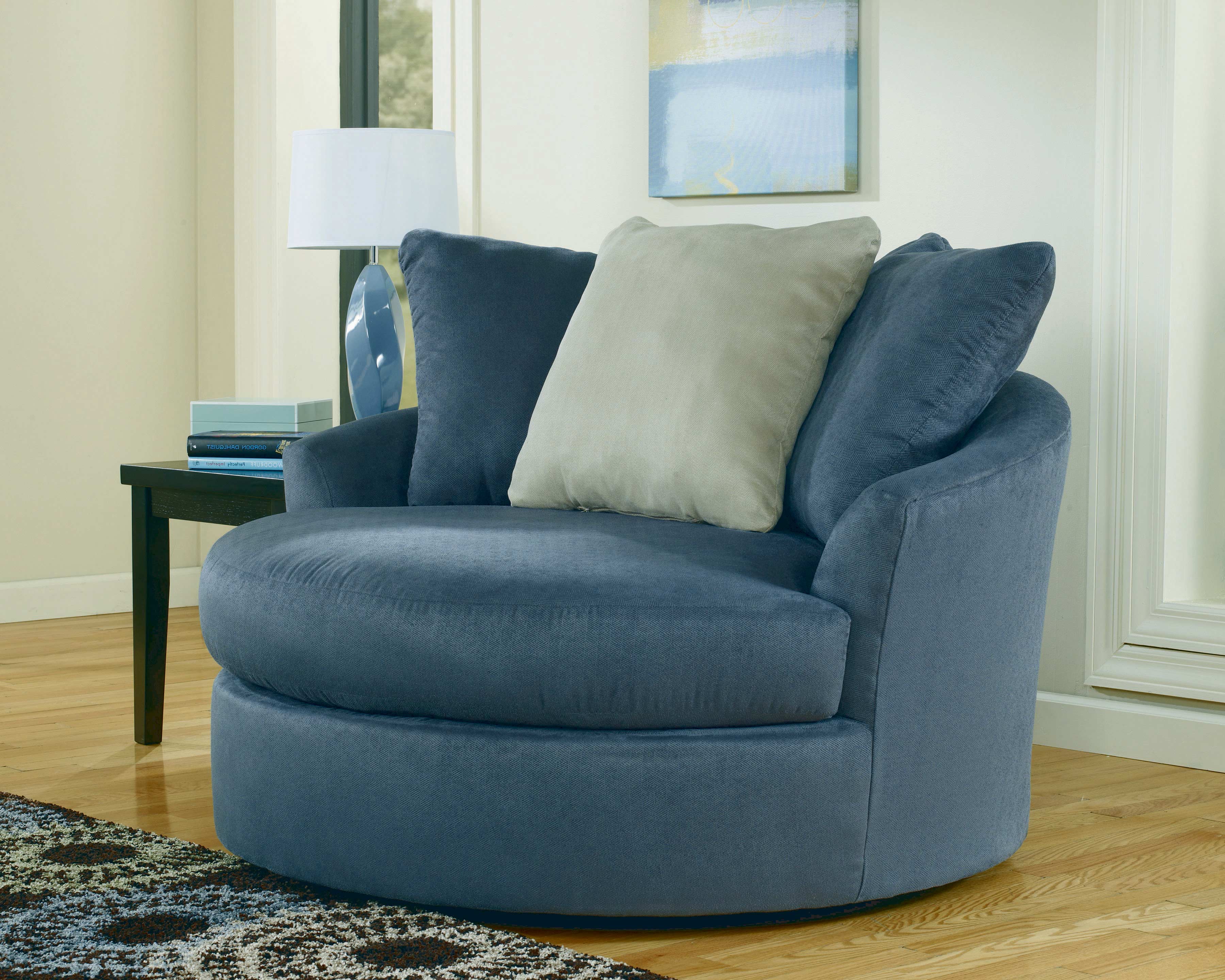If you're tired of constantly wiping down your kitchen counters and walls after doing dishes, a kitchen sink splash guard may be the solution you need. Not only does it protect your walls from water and food splatter, but it also adds a stylish touch to your kitchen. But how exactly do you install one? Let's break it down step by step. First, measure the length and height of your sink. This will determine the size of splash guard you need. Next, choose a material that fits your budget and style preferences. Stainless steel and acrylic are popular choices, but you can also get creative with tile or even a chalkboard splash guard. Once you have your materials, it's time to start the installation process. Place the splash guard against the wall behind your sink and mark where it needs to be secured. Then, using a drill, install screws or adhesive strips to hold the splash guard in place. Voila! Your kitchen sink splash guard is now installed and ready to protect your walls from splashes and spills.1. How to Install a Kitchen Sink Splash Guard
Aside from the obvious benefit of keeping your kitchen walls clean, a splash guard also has other advantages that make it a worthwhile addition to your kitchen. First and foremost, a splash guard protects your walls from water damage. Over time, constant exposure to water can cause paint to peel and walls to warp. A splash guard acts as a barrier, preventing water from seeping into your walls. Additionally, a splash guard can help reduce the amount of time and effort needed to clean your kitchen. Instead of having to scrub down your walls every time you do dishes, you can simply wipe down the splash guard to keep it looking clean and fresh. Finally, a kitchen sink splash guard can add a decorative element to your kitchen. With a variety of materials and designs to choose from, you can find a splash guard that complements your kitchen's style and adds a touch of personality to the space.2. The Benefits of a Kitchen Sink Splash Guard
When it comes to choosing a material for your kitchen sink splash guard, there are a few factors to consider. The first is durability. You want a material that can withstand constant exposure to water and cleaning products without deteriorating or becoming damaged. Another important factor is maintenance. Some materials, such as stainless steel, are easy to clean and maintain, while others, like tile, may require more effort and upkeep. Consider your lifestyle and how much time and effort you're willing to put into maintaining your splash guard. Lastly, think about the overall look and feel of your kitchen. Your splash guard should complement your existing décor and add to the overall aesthetic of the space. You can choose a material that blends in seamlessly or one that makes a statement and stands out.3. Choosing the Right Material for Your Kitchen Sink Splash Guard
If you're feeling crafty and want to save some money, you can make your own kitchen sink splash guard using materials you may already have at home. One idea is to repurpose an old cutting board by attaching it to the wall behind your sink. This not only protects your walls but also gives you extra counter space for food prep. If you have leftover tile from a home renovation project, you can create a unique and customized splash guard by arranging the tiles in a pattern of your choice. This adds a personal touch to your kitchen and is sure to impress your guests. Another DIY option is to use a large picture frame and insert a piece of acrylic or plexiglass. This creates a sleek and modern-looking splash guard that you can easily change out with different pictures or designs whenever you want.4. DIY Kitchen Sink Splash Guard Ideas
To keep your kitchen sink splash guard looking its best, it's important to clean and maintain it regularly. For materials like stainless steel or acrylic, simply wiping down the splash guard with a damp cloth and mild cleaner should do the trick. For tile or other materials with grout, you may need to use a brush and specialized grout cleaner to remove any buildup or stains. It's also important to regularly check for any damage or wear and tear on your splash guard. If you notice any cracks or loose pieces, make sure to repair or replace them as soon as possible to prevent further damage.5. How to Clean and Maintain Your Kitchen Sink Splash Guard
Some may see a kitchen sink splash guard as a non-essential item, but it actually plays an important role in keeping your kitchen clean and well-maintained. Not only does it protect your walls from water damage, but it also makes cleaning up after meals much easier and less time-consuming. It also adds an element of style and personality to your kitchen, making it a more inviting and enjoyable space to cook and entertain in. If you've ever had to deal with water damage or constantly scrubbing down your walls, you'll understand the importance of having a kitchen sink splash guard in place.6. The Importance of a Kitchen Sink Splash Guard
While the primary purpose of a kitchen sink splash guard is to protect your walls, there are other creative ways to use it in your kitchen. For example, you can attach hooks or magnetic strips to your splash guard to hang utensils or other kitchen tools, freeing up valuable counter space. You can also use the splash guard as a makeshift shelf for small plants or herbs, adding a touch of greenery to your kitchen. If you have a chalkboard or whiteboard splash guard, you can use it to write down grocery lists, meal plans, or even inspirational quotes to keep you motivated while cooking.7. Creative Ways to Use a Kitchen Sink Splash Guard
If you decide to change up the look of your kitchen or need to replace a damaged splash guard, the removal and replacement process is relatively simple. Using a screwdriver or adhesive remover, carefully remove the screws or strips holding the splash guard in place. Then, gently pull the splash guard away from the wall. If there is any residue left behind, use a cleaner and cloth to remove it before installing the new splash guard. Follow the same steps as mentioned in the installation process to secure the new splash guard in place, and you're all set!8. How to Remove and Replace a Kitchen Sink Splash Guard
When it comes to choosing a kitchen sink splash guard, the best type for your home will depend on your personal preferences and needs. If you want a low-maintenance and durable option, stainless steel or acrylic are great choices. For a more customizable and unique option, tile or chalkboard splash guards may be the way to go. If you have young children in the house, you may want to consider a splash guard with rounded edges or a softer material to prevent any accidents or injuries.9. The Best Types of Kitchen Sink Splash Guards for Your Home
While kitchen sink splash guards are generally easy to install and maintain, there are a few common issues that may arise. If you notice any water damage or discoloration on your walls behind the splash guard, it may be a sign of water seeping through. In this case, make sure the splash guard is properly secured and consider adding a sealant to prevent any further damage. If the splash guard becomes loose or falls down, it may be due to the adhesive or screws coming loose. Simply reattach or tighten them to solve the issue. Lastly, if you notice any cracks or damage on your splash guard, it's important to repair or replace it as soon as possible to prevent any further damage to your walls. In conclusion, a kitchen sink splash guard is a practical and stylish addition to any kitchen. It protects your walls from water damage, makes cleaning up easier, and adds a decorative touch to your space. With the right material and installation, you can enjoy a clean and functional kitchen for years to come.10. Troubleshooting Common Issues with Kitchen Sink Splash Guards
The Importance of a Kitchen Sink Splash Guard in House Design
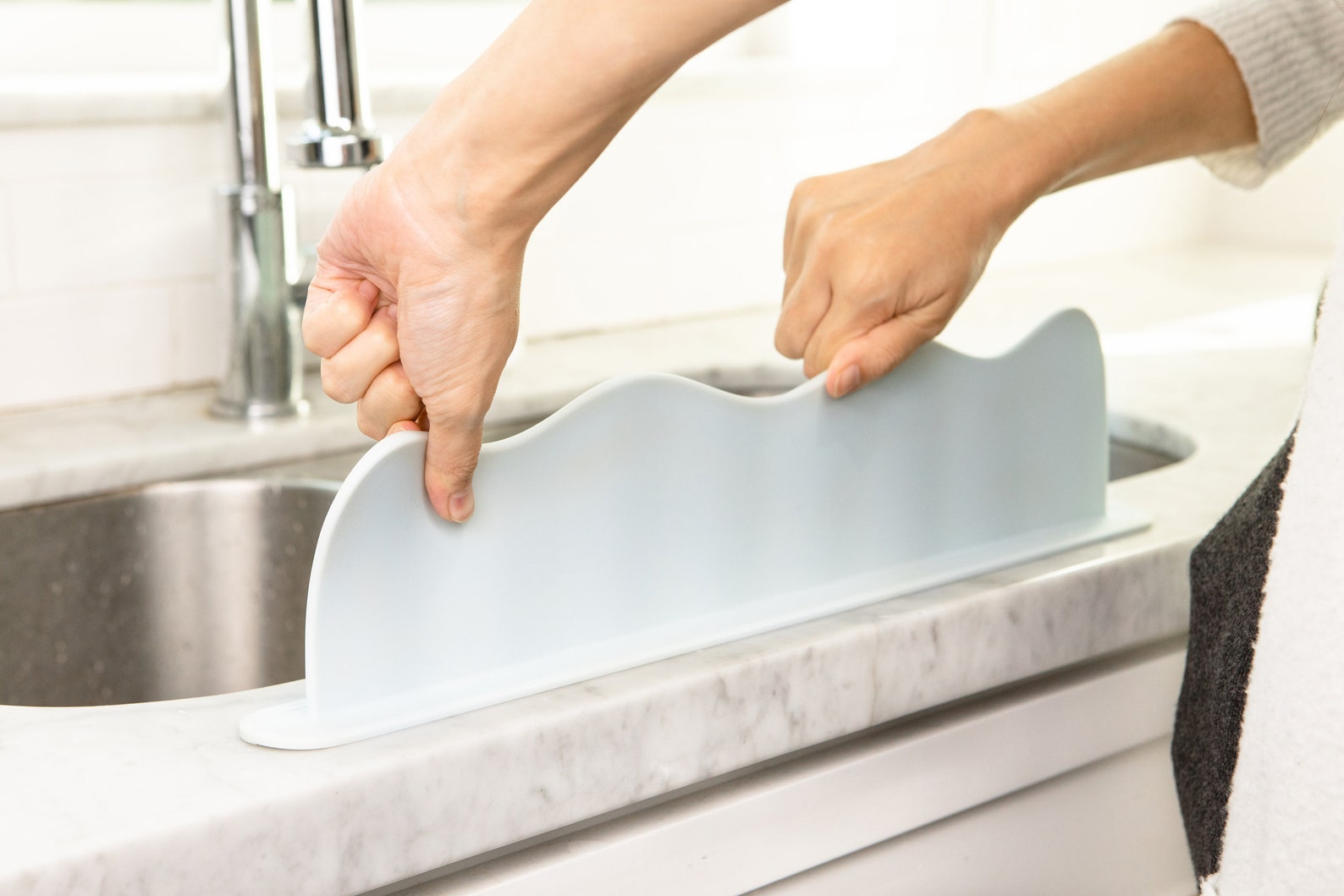
What is a Kitchen Sink Splash Guard?
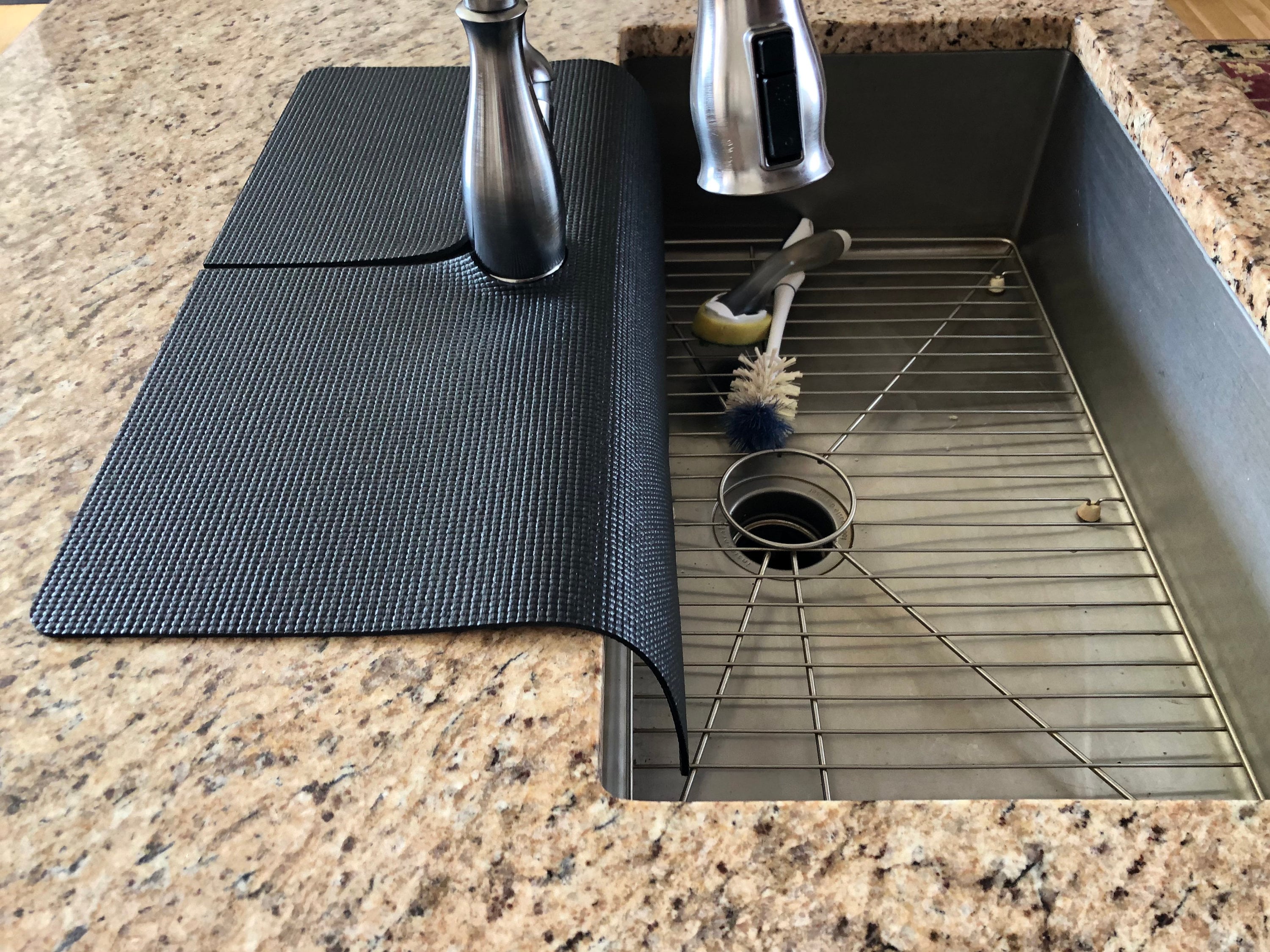 A kitchen sink splash guard is a protective barrier that is installed behind the sink in a kitchen. It is designed to prevent water, soap, and other debris from splashing onto the wall and surrounding surfaces while washing dishes or preparing food. This feature is especially important for maintaining the cleanliness and overall aesthetic of the kitchen.
A kitchen sink splash guard is a protective barrier that is installed behind the sink in a kitchen. It is designed to prevent water, soap, and other debris from splashing onto the wall and surrounding surfaces while washing dishes or preparing food. This feature is especially important for maintaining the cleanliness and overall aesthetic of the kitchen.
The Functionality of a Splash Guard
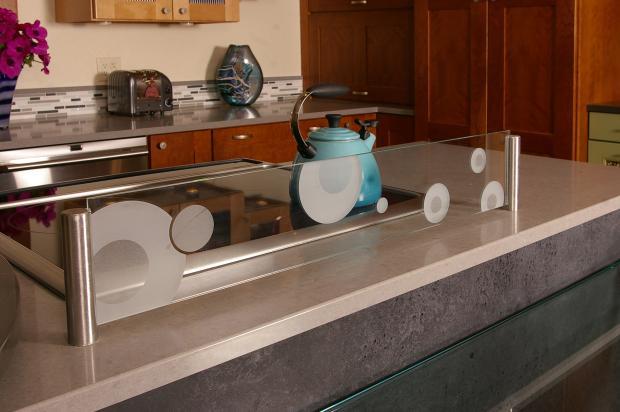 The main purpose of a kitchen sink splash guard is to protect the walls and countertops from water damage and stains. It also helps to keep the area around the sink clean and hygienic, as it prevents food particles and other debris from splattering onto nearby surfaces. Additionally, a splash guard can act as a barrier to contain any potential leaks or spills from the sink, preventing them from spreading to other areas of the kitchen.
The main purpose of a kitchen sink splash guard is to protect the walls and countertops from water damage and stains. It also helps to keep the area around the sink clean and hygienic, as it prevents food particles and other debris from splattering onto nearby surfaces. Additionally, a splash guard can act as a barrier to contain any potential leaks or spills from the sink, preventing them from spreading to other areas of the kitchen.
The Role of a Splash Guard in House Design
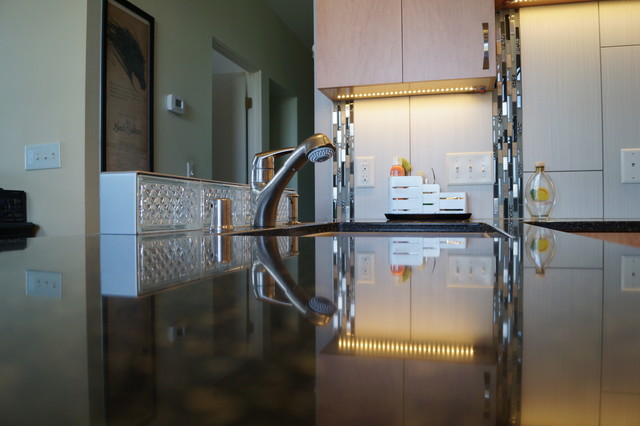 While its functionality is important, a kitchen sink splash guard also plays a significant role in the overall design of a house. It can serve as a focal point in the kitchen, adding a touch of style and personality to the space. With various materials, colors, and designs available, a splash guard can complement the overall theme and aesthetic of the kitchen, making it a seamless part of the design.
Incorporating a Kitchen Sink Splash Guard into Your House Design
When it comes to choosing a kitchen sink splash guard, there are several factors to consider. It is essential to select a material that is both durable and easy to clean, such as stainless steel or tile. The color or design should also complement the rest of the kitchen, creating a cohesive and aesthetically pleasing look. Additionally, the size and shape of the splash guard should be chosen based on the size and layout of the kitchen.
Conclusion
In conclusion, a kitchen sink splash guard is not only a functional feature but also an essential element in house design. It not only protects the walls and surfaces from damage but also adds to the overall aesthetic of the kitchen. When selecting a splash guard, it is essential to consider both functionality and design to create a beautiful and practical addition to your kitchen.
While its functionality is important, a kitchen sink splash guard also plays a significant role in the overall design of a house. It can serve as a focal point in the kitchen, adding a touch of style and personality to the space. With various materials, colors, and designs available, a splash guard can complement the overall theme and aesthetic of the kitchen, making it a seamless part of the design.
Incorporating a Kitchen Sink Splash Guard into Your House Design
When it comes to choosing a kitchen sink splash guard, there are several factors to consider. It is essential to select a material that is both durable and easy to clean, such as stainless steel or tile. The color or design should also complement the rest of the kitchen, creating a cohesive and aesthetically pleasing look. Additionally, the size and shape of the splash guard should be chosen based on the size and layout of the kitchen.
Conclusion
In conclusion, a kitchen sink splash guard is not only a functional feature but also an essential element in house design. It not only protects the walls and surfaces from damage but also adds to the overall aesthetic of the kitchen. When selecting a splash guard, it is essential to consider both functionality and design to create a beautiful and practical addition to your kitchen.

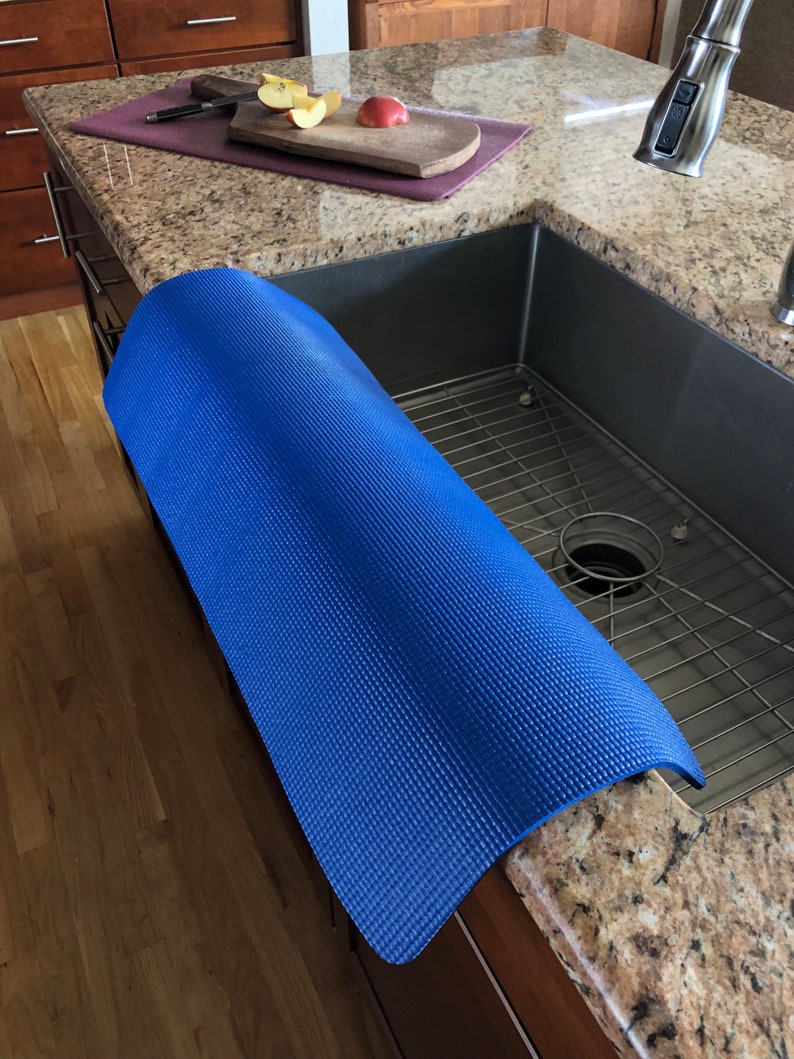

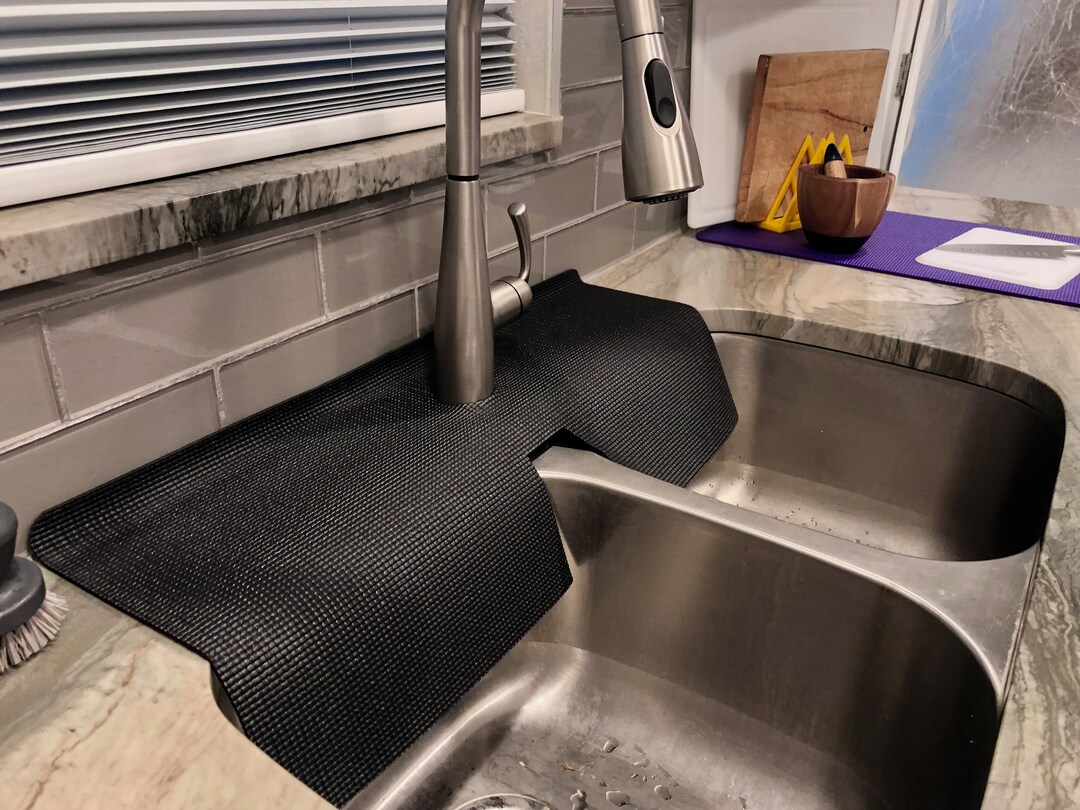
:max_bytes(150000):strip_icc()/poyang-kitchen-splash-guard-cff8abe27a14458d9f8397dbd2626a3b.jpg)
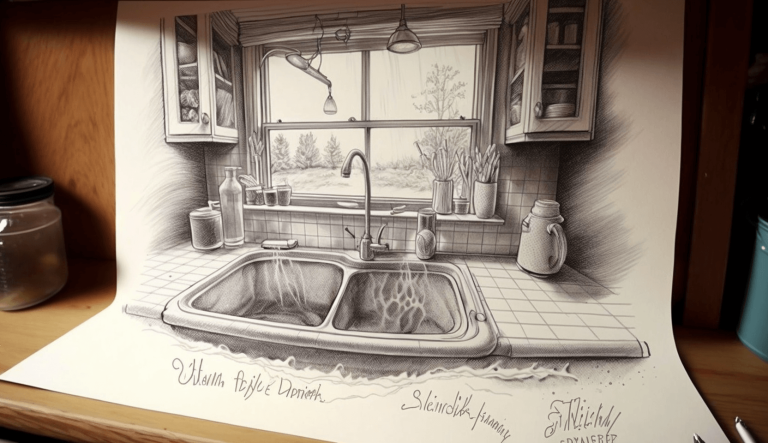














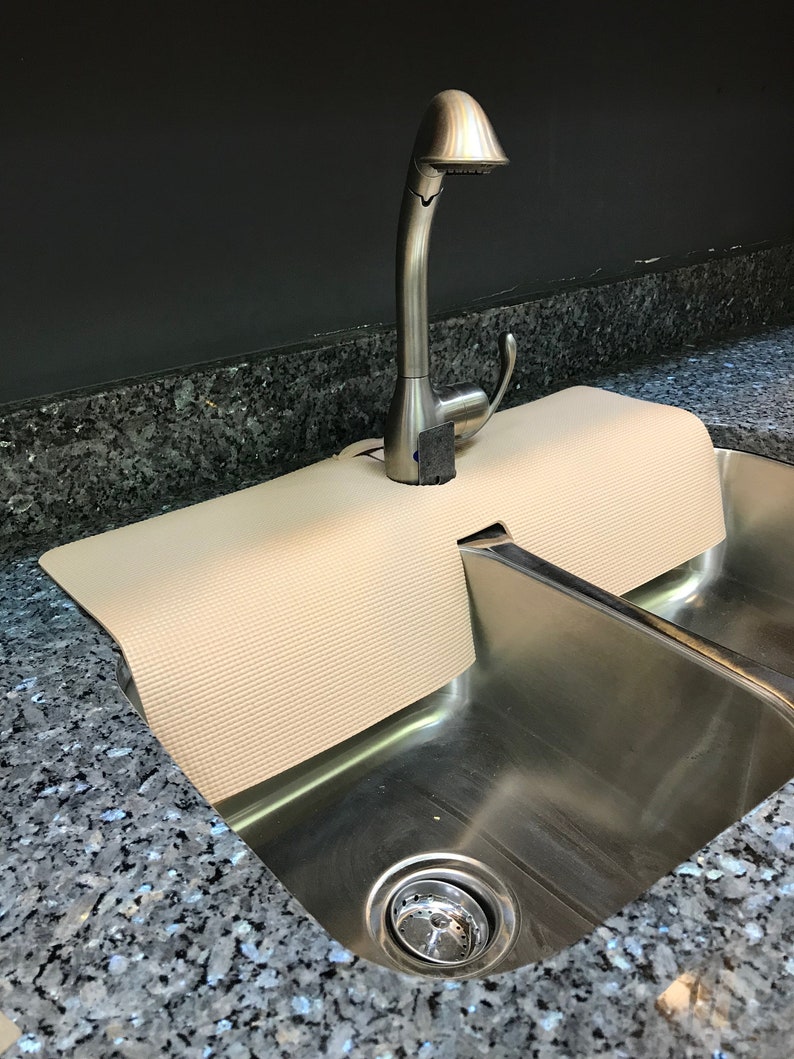






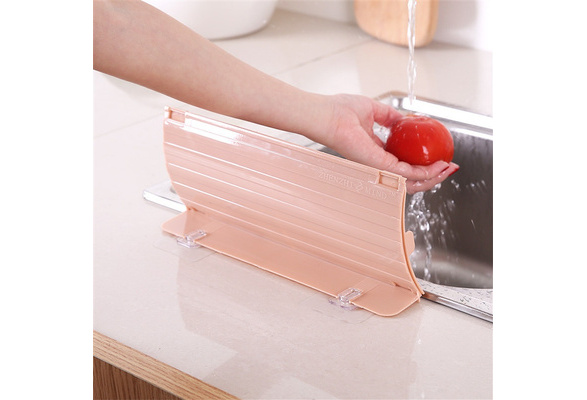



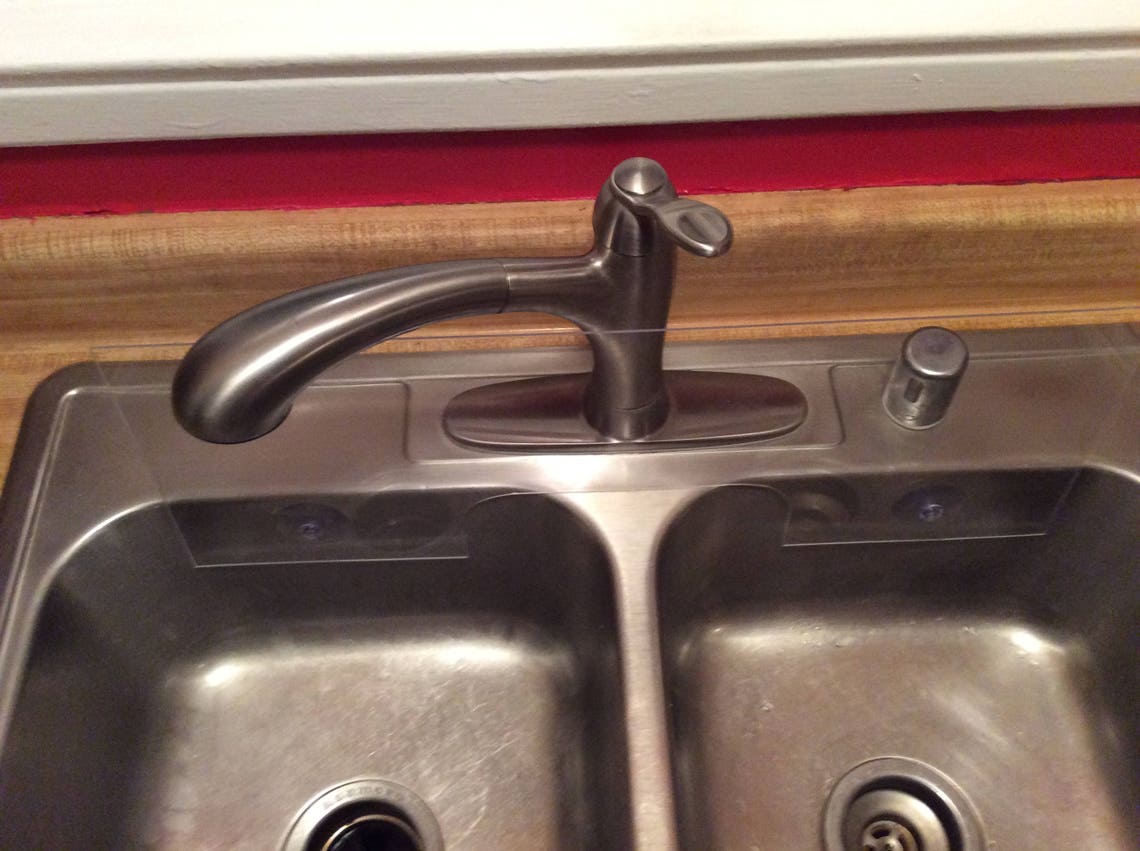
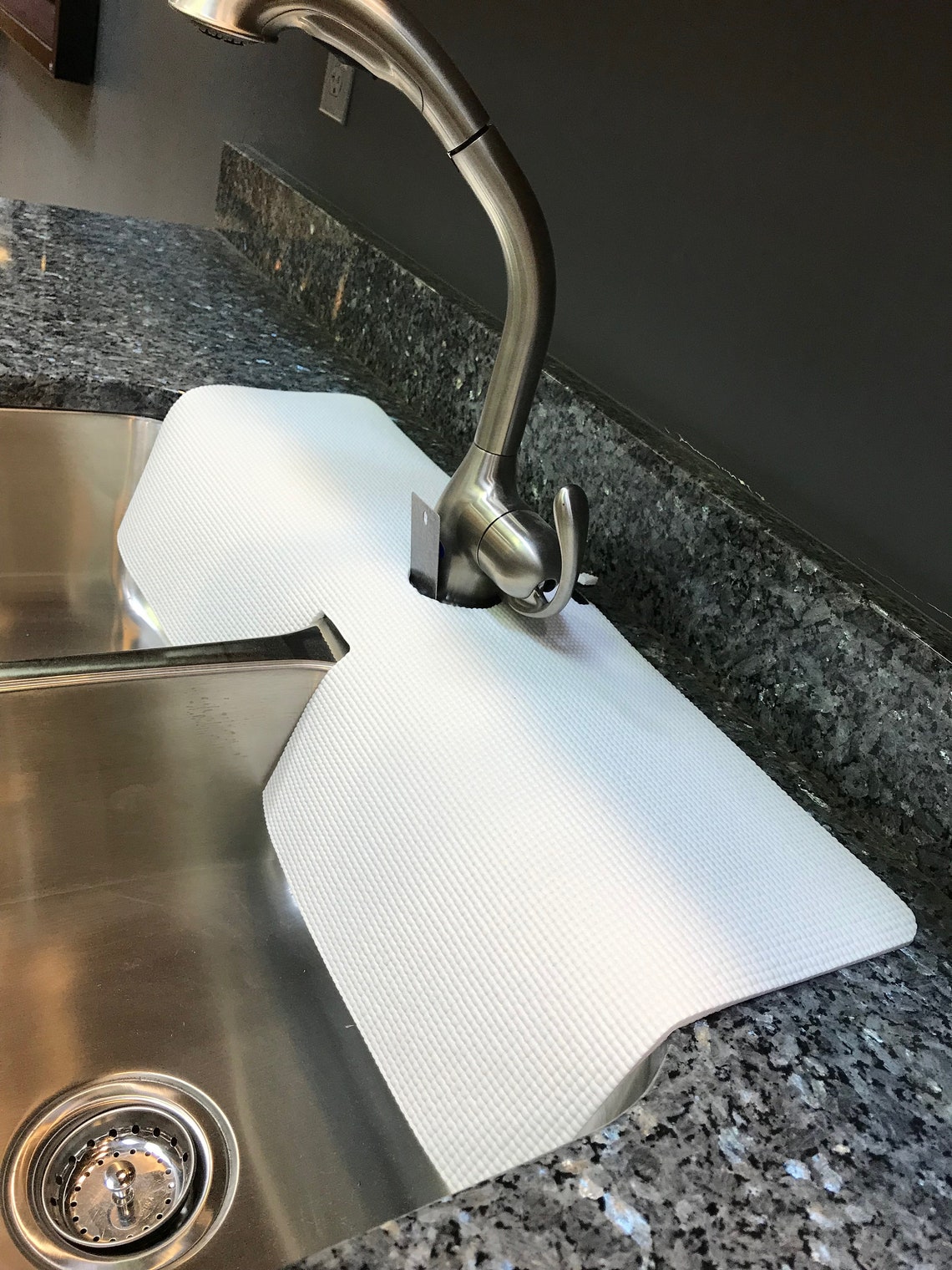
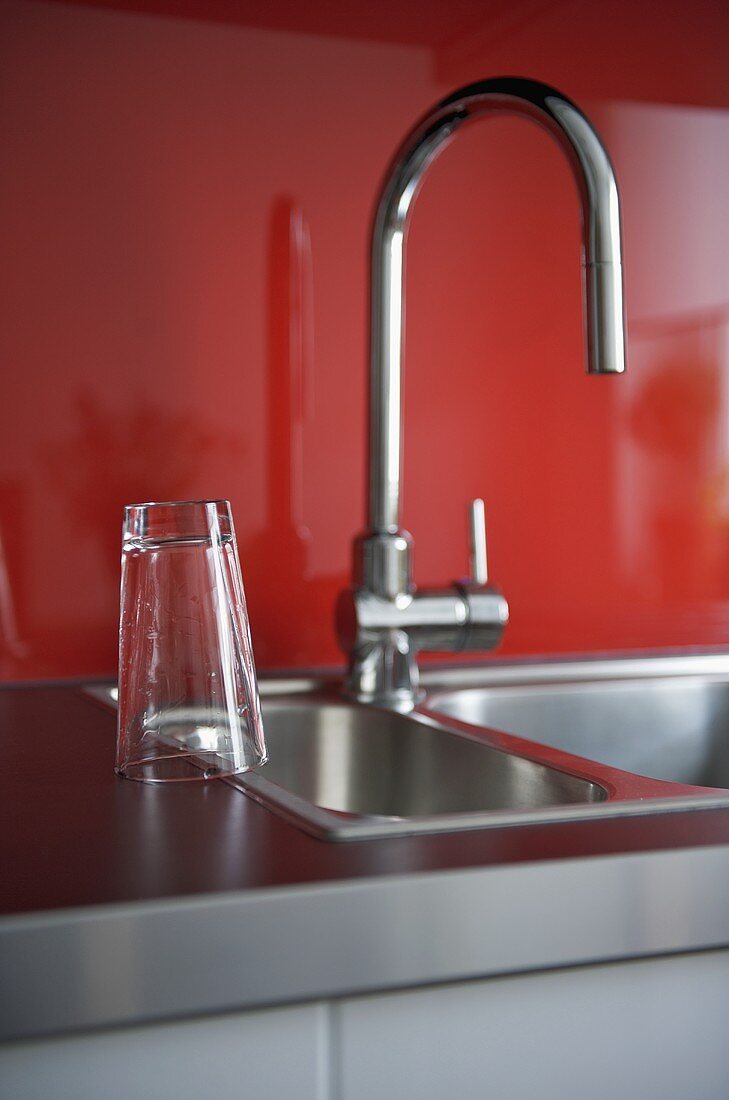







:max_bytes(150000):strip_icc()/Basic-kitchen-sink-types-1821207_color_rev-0b539306b9ef4236a136624ad2a89a4c.jpg)





